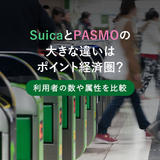Higher percentage of females in their 20s and males in their 60s and over
We will first look at the male to female ratio of people searching for "tourism."
This survey was conducted using Dockpit, VALUES' online behavior analytics tool that enables users to analyze competitor websites and research trends using behavioral data updated monthly in their browsers.

Percentage of males and females in their 20s and 60s and over who searched for “tourism"
Period: December 2022 - May 2023
Devices: PC, smartphone
For those in their 20s, 52.6% of people searching are female, indicating that women make up the majority. In contrast, 61.2% of those in their 60s and over are male. It appears that among seniors, more men actively search for "tourism.”
People in their 20s spend less time on a website, 1/2 the time of those 60s and over
So, how long do people spend on a website that they visit after searching "tourism"?

Basic indicators for those in their 20s and 60s and over who searched “tourism”
Period: December 2022 - May 2023
Devices: PC, smartphone
While visitors in their 20s spend an average of only 58 seconds on the website, visitors in their 60s and over spend an average of 2 minutes and 15 seconds, more than twice the amount of time.
The difference in time spent on the website may be due to the fact that people in their 20s are more accustomed to gathering information online and quicker to find the information they want or judge and realize that information they are looking for is unavailable on a webpage or website.
People in their 60s and over are less likely than those in their 20s to conduct online searches on weekends
Which days of the week is "tourism" search for the most?

Days of the week that people in their 20s and 60s and over searched "tourism"
Period: December 2022 - May 2023
Devices: PC, smartphone
A higher percentage of people in their 20s and 60s and over are searching on Saturdays and Sundays, but the biggest difference is observed between weekdays and Saturdays. The percentage of people in their 20s is much higher on Saturdays and Sundays, while the percentage of people in their 60s and over exhibits a moderate increase.
Compared to people in their 20s who work on weekdays, people in their 60s and over who are retired are searching regardless of whether it is on weekdays or weekends.
People in their 60s and over tend to search during the day while young people tend to search at night
We saw that the percentage of people searching on Saturdays and Sundays is highest, but what time of day are searches conducted?

Time of day people in their 20s and 60s and over searched "tourism"
Period: December 2022 - May 2023
Devices: PC, smartphone
The percentage of people in their 60s and over searching is higher during the daytime from 9:00 a.m. to 5:00 p.m. In contrast, the percentage of people in their 20s increases sharply from 8:00 p.m. As with the day of the week, the time of search also seems to be related to daily activity patterns such as work.
12:00 p.m. having the lowest percentage of people in their 60s and over may be due to the fact that many have lunch at this hour.
When advertising, it seems it would be more efficient to post based on the behavioral patterns of each target segment.
What are people interested in when it comes to "tourism"?
Next, we will explore keywords that are searched in combination with "tourism." The keywords that are searched in combination refers to the terms that are entered in the search bar with the main keyword (“tourism”); e.g. "tourism + [additional keyword]."
■People in their 20s tend to search by name of urban areas
For people in their 20s, names of the region that are searched in combination with the main keyword stood out.

Keyword combinations with "tourism" searched by people in their 20s
Period: December 2022 - May 2023
Devices: PC, smartphone
Among the region names, urban areas, including Osaka, Tokyo, Nagoya, and Fukuoka, are the most commonly searched.
With "model course" in third place, it appears that there is also demand for visiting classic sightseeing spots.
■People in their 60s and over have more needs for travel itineraries and also search for maps and cars
On the other hand, while people in their 60s and over did search some region-related keywords, they don’t have as many ranking high as it does for the ranking for people in their 20s.
Since keywords like "recommended" and "ranking" ranked in, unlike people in their 20s who already have a specific place they want to go sightseeing, people in their 60s and over seem to need to search for places to visit.

Keyword combinations with "tourism" searched by people in their 60s and over
Period: December 2022 - May 2023
Devices: PC, smartphone
The keyword "model course" dominating the ranking is noteworthy. Compared to the keyword in the No. 2 place, "model course" had six times the number of searches. "Model course" also appears in the ranking for people in their 20s, but there may be more people in their 60s and over who want to visit classic sightseeing spots.
In addition, keywords like "map" in 7th place and "car" in 9th place which did not rank high among people in their 20s, suggesting that places that you can drive to are popular among people in their 60s.
What websites are visited when searching "tourism"?
Next, we will look at websites that are visited when searching "tourism."
First, the top websites for both people in their 20s and 60s and older were characterized by a large number of hotel reservation websites.
■Do people in their 20s find having a “theme” important for travel?

Main pages visited by people in their 20s who searched for “tourism”
Period: December 2022 - May 2023
Devices: PC, smartphone
A distinctive feature of websites visited by people in their 20s was the ranking of "RETRIP," a curation website that shares information for outings.
A curation website is a website that organizes information based on a theme.
Example:
・A list of sunflower fields in the Kanto region where you want to visit this summer
・A summary of recommended spots for a rainy season Kamakura date
The website publishes articles on sightseeing locations and shops according to themes such as "stylish cafés in the Kanto region." It also provides information on seasonal content and events, and it may be that people in their 20s tend to seek tourist information based on a theme, such as "places to go if you're looking for a stylish café."
Also ranked on the list was "TABIKOBO," a website that allows users to book tours both in Japan and overseas. Perhaps there is demand to travel abroad, which has been difficult to with the COVID-19 pandemic.
■People in their 60s and over tend to prefer itineraries that are somewhat fixed to a certain degree, such as tours

Main pages visited by people in their 60s and over who searched for “tourism”
Period: December 2022 - May 2023
Devices: PC, smartphone
A distinctive feature of websites visited by people in their 60s and over was the ranking of "Yahoo! Loco," a web portal where visitors can search for food, places to visit, and other places to go.
A web portal is the first website visited when gathering information.
In terms of searching for travel destinations and shops, it may serve the same purpose as "RETRIP," which ranked among people in their 20s, but "Yahoo! Loco" lists out sightseeing spots and shops.
People in their 60s and over tend to look for recommended spots based on region rather than narrowing their search by theme like people in their 20s.
The tour reservation website "Club Tourism" also ranked. Club Tourism can book tours both in Japan and overseas.
The fact that "model course" was also ranked first in the aforementioned keywords searched in combination with "tourism" suggests that people in their 60s and over may prefer sightseeing with a somewhat fixed itinerary, rather than making their own plans in accordance to a particular theme.
Summary
We used the keyword "tourism" to research people in their 20s and those in their 60s and over and what they were interested in when it comes to "tourism."
We found that those in their 20s tend to prefer theme-based tourism, whereas those in their 60s and over have a greater need for a travel itinerary and tours with somewhat of a fixed course.
In addition, it seems that the days and hours of the week when people tend to research online to gather and consider information differ between age groups.
About Dockpit
▼Data from Dockpit was used in this case study. Dockpit is an online behavior analytics tool provided by VALUES, Inc., and it allows you to access online behavioral data (updated monthly) via your browser so you can research competitor websites and investigate trends. There is a FREE version of Dockpit, so if you are interested in using it, please register below.
※日本語での記事はこちらをご確認ください

2023年5月8日に新型コロナウイルスが5類に移行したことに伴い、外出自粛などの要請がなくなりました。約3年ぶりに規制なく旅行ができるようになったため、徐々に旅行ムードも戻ってきています。 今回は「観光」というキーワードについて、20代と60代以上の検索行動や気になりごとの違いを分析しました。






















Born and raised in the Bay Area, U.S.A, I was fascinated by the different social and purchasing behaviors between Japanese and American consumers. I studied communication for undergrad and international marketing for my graduate studies. My professional background is in bilingual recruitment and Japanese-English translation.